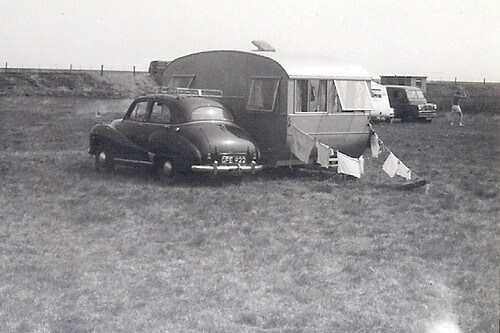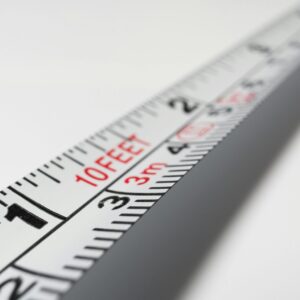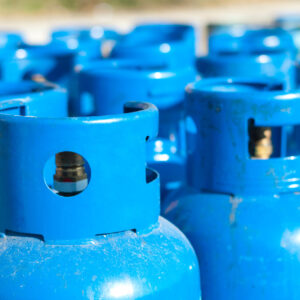A touring caravan is a popular choice for those seeking an affordable and flexible way to explore the great outdoors. However, many people wonder how long a touring caravan will last before it needs to be replaced. The answer to this question depends on several factors.
According to a number of UK-based caravan dealers, the average practical lifespan of a touring caravan is around 15 years. However, this figure can vary depending on the quality of the manufacturing, how often the caravan is serviced, and how frequently it is used. It is important to note that this figure is an average, and some caravans may last longer or shorter than this.
Understanding Caravans
A caravan, also known as a travel trailer, is a type of recreational vehicle designed for temporary accommodation during travel or camping. Caravans come in various shapes and sizes, from small pop-up trailers to large motorhomes. They are popular among people who enjoy outdoor activities such as camping, hiking, and road trips.
There are two main types of caravans: touring caravans and static caravans. Touring caravans are designed to be towed behind a vehicle and are ideal for people who enjoy travelling and exploring different places. Static caravans, on the other hand, are designed to be permanently sited in one location, such as a holiday park or campsite.
Some popular caravan brands include Bailey, Elddis, Lunar, Swift, and Airstream. These brands offer a range of models and designs to suit different needs and preferences.
Caravans are typically made of lightweight materials such as aluminium and fibreglass to make them easy to tow and manoeuvre. They are also equipped with various amenities such as beds, kitchens, bathrooms, and entertainment systems to provide a comfortable and convenient living space.
Maintenance is an important aspect of owning a caravan, especially for touring caravans that are exposed to the elements during travel. Regular checks and servicing of the caravan’s components such as tyres, brakes, and electrical systems are necessary to ensure safe and trouble-free travel.
In summary, caravans are a popular choice for people who enjoy outdoor activities and travelling. They come in various types and designs to suit different needs and preferences. Regular maintenance is important to ensure safe and trouble-free travel.
Lifespan of a Caravan
Touring caravans are designed to be durable and long-lasting, but their lifespan can vary depending on several factors. The lifespan of a touring caravan can be affected by the quality of its manufacturing, how well it is maintained, and how often it is used.
According to several UK-based caravan dealers, the average practical life of a caravan is 15 years. However, with proper maintenance and care, a touring caravan can last well over 10 years. Regular servicing, cleaning, and upkeep can help extend the life of a caravan significantly.
It is important to note that the lifespan of a caravan can also be affected by how often it is used. Caravans that are used frequently may experience more wear and tear than those that are used less often. Additionally, exposure to harsh weather conditions can also impact a caravan’s lifespan.
When considering the lifespan of a caravan, it is also important to consider the type of caravan. Static caravans, for example, can last up to 30 years with proper maintenance, while touring caravans typically have a shorter lifespan due to their exposure to the elements and constant movement.
In summary, the lifespan of a touring caravan can vary depending on several factors, including manufacturing quality, maintenance, frequency of use, and exposure to harsh weather conditions. While the average practical life of a caravan is 15 years, with proper care and upkeep, a touring caravan can last well over 10 years.
Key Factors Influencing Lifespan
The lifespan of a touring caravan can be influenced by several key factors. Proper maintenance is one of the most important factors that can help to extend the lifespan of a caravan. Regular servicing and upkeep can help to prevent issues that may arise from wear and tear, corrosion, and dampness.
Dampness is a common problem that can affect the lifespan of a caravan. If left unchecked, dampness can lead to the growth of mould and mildew, which can cause damage to the roof, doors, windows, and other areas of the caravan. It is important to regularly check for signs of dampness and to address any issues promptly.
The roof is another area that can affect the lifespan of a caravan. Over time, the roof may become damaged or corroded, which can lead to leaks and water ingress. It is important to regularly check the roof for any signs of damage, such as cracks, holes, or rust.
The hitch, axles, tires, and wheels are also important components that can affect the lifespan of a caravan. Regular maintenance, such as greasing and lubrication, can help to prevent corrosion and wear and tear. It is also important to regularly check the tires for signs of wear and to replace them when necessary.
The pipes, seals, tow bar, and electrical system are other important components that can affect the lifespan of a caravan. Regular maintenance and servicing can help to prevent issues that may arise from wear and tear or corrosion.
The fridge, external locker, and awning rail are also important areas that can affect the lifespan of a caravan. Regular cleaning and maintenance can help to prevent issues that may arise from dampness or corrosion.
The cupboards, lockers, cushions, mattresses, veneer, and smell are other areas that can affect the lifespan of a caravan. Regular cleaning and maintenance can help to prevent issues that may arise from dampness or wear and tear.
Overall, proper maintenance and regular checks are essential for extending the lifespan of a touring caravan. By addressing any issues promptly and taking steps to prevent problems from arising, caravan owners can ensure that their vehicle lasts for many years to come.
Buying and Selling Caravans
When it comes to buying or selling a caravan, there are a few things to consider. Whether you’re looking to purchase a new or used caravan, or you’re looking to sell your current one, there are a few factors that can affect the process.
Buying a Caravan
When buying a caravan, it’s important to consider whether you want a new or used one. A brand new caravan will come with a longer warranty and will generally have a longer lifespan than a used caravan. However, a used caravan can be a more affordable option, and there are plenty of second-hand caravans available for sale.
If you’re looking to buy a used caravan, it’s important to do your research and ensure that the caravan is in good condition. You should check the shock absorbers, axles, brakes, tires, lighting, tow bar, hitches, handbrake, and connector connection of the caravan. The water system and gas installation should also be inspected.
There are many dealers and private sellers who offer both new and used caravans for sale. You can also find caravans for sale on websites such as Autotrader.
Selling a Caravan
If you’re looking to sell your caravan, there are a few things to consider. Firstly, you should ensure that your caravan is in good condition and is clean and tidy. This will help to attract potential buyers.
You can sell your caravan privately or through a dealer. If you choose to sell your caravan privately, you will need to advertise it yourself. You can do this through websites such as Autotrader or by placing an advert in a local newspaper.
If you choose to sell your caravan through a dealer, they will usually offer a part-exchange deal or buy your caravan outright. Some dealers will also offer a service where they will sell your caravan on your behalf.
Whether you’re buying or selling a caravan, it’s important to take your time and ensure that you’re making the right decision. You may also want to take a test drive before making a purchase to ensure that the caravan is suitable for your needs.
Caravan Maintenance and Repairs
Maintaining a touring caravan is essential to ensure its longevity and to avoid costly repairs. Regular caravan servicing is necessary to keep the caravan in good condition and to identify any potential issues before they become major problems. It is recommended that a caravan is serviced every 12 months or every 10,000 km, whichever comes first.
The cost of caravan maintenance can vary depending on the age and condition of the caravan. Regular maintenance can help to prevent major repairs and save money in the long run. It is important to keep a record of all maintenance and repairs carried out on the caravan, including the date, cost, and details of the work done.
Some common problems that can occur with touring caravans include issues with the water and gas systems, electrical faults, and problems with the brakes and suspension. It is important to address any issues as soon as they arise to prevent further damage and to ensure the safety of the occupants.
Most touring caravans come with a handbook that provides information on maintenance and repairs. It is important to read the handbook and follow the manufacturer’s recommendations to ensure that the caravan is maintained correctly.
In the event of a breakdown or damage to the caravan, it is important to have access to spare parts and to know where to find a reputable repairer. Many caravan manufacturers and dealerships offer spare parts and repair services, and there are also independent repairers who specialise in caravan repairs.
Overall, regular caravan maintenance and repairs are essential to ensure the longevity of the caravan and to ensure the safety of its occupants. By following the manufacturer’s recommendations and addressing any issues as soon as they arise, owners can avoid costly repairs and keep their caravan in good condition for many years to come.
Caravan Insurance and Security
When it comes to owning a touring caravan, it is important to consider both insurance and security. Caravan insurance is not a legal requirement in the UK, but it is highly recommended to protect your investment.
Touring caravan insurance typically covers accidental damage, theft, and third-party liability. It’s important to note that caravan insurance is not the same as car insurance, as car insurance usually only covers the towing of the caravan and not the caravan itself. It’s important to shop around for the best caravan insurance policy that meets your specific needs, as policies can vary in coverage and cost.
In addition to insurance, caravan security should also be a top priority. Caravans can be a target for thieves, so it’s important to take steps to deter theft and protect your caravan. This can include installing safety devices such as alarms, immobilisers, and tracking devices. These devices can not only help prevent theft but also assist in the recovery of a stolen caravan.
It’s also important to keep a record of your caravan’s serial number, as this can help identify the caravan if it is stolen. This information can be provided to the police and insurance company to aid in recovery and claim processing.
Overall, investing in caravan insurance and security measures can provide peace of mind and protect your caravan from theft and damage.
Caravanning Lifestyle
Caravanning is a popular lifestyle choice for many people in the UK who enjoy the freedom and flexibility it provides. Whether it’s a weekend getaway or an extended holiday, caravanning allows people to move around and explore different parts of the country at their own pace.
When it comes to the lifespan of a touring caravan, it’s important to consider the caravanning lifestyle. The more a caravan is moved and used, the more wear and tear it will experience. However, proper maintenance and care can help prolong its lifespan.
Many caravanners prefer to stay at campsites or caravan parks, which offer amenities such as electricity, water, and waste disposal. These sites often require a site license, which can be obtained from the local council or caravan park owner. It’s important to renew the site license regularly to avoid any legal issues.
For those who prefer a more permanent holiday home, there are options such as static caravans. These are designed to be left in one location and offer a more home-like feel. However, they are not as flexible as touring caravans and cannot be moved around as easily.
Overall, the caravanning lifestyle offers a unique and enjoyable way to explore the UK. With proper maintenance and care, a touring caravan can provide many years of use and enjoyment.
Frequently Asked Questions
What is the typical lifespan of a touring caravan?
According to experts, the average lifespan of a touring caravan is around 14 to 15 years. However, this can vary depending on several factors, such as the quality of the materials used in construction, the frequency of use, and the level of maintenance.
What factors affect the lifespan of a touring caravan?
Several factors can affect the lifespan of a touring caravan. These include exposure to the elements, such as rain, wind, and sunlight, as well as the level of maintenance and care provided by the owner. Additionally, the quality of the materials used in construction and the frequency of use can also play a role.
Are there any maintenance tips to extend the lifespan of a touring caravan?
Yes, there are several maintenance tips that can help extend the lifespan of a touring caravan. These include regular cleaning and inspection, proper storage when not in use, and addressing any issues or repairs promptly. It is also important to ensure that the caravan is properly winterized to prevent damage from freezing temperatures.
What are the signs that a touring caravan is reaching the end of its lifespan?
Some common signs that a touring caravan is reaching the end of its lifespan include water damage, structural issues, and mechanical problems. Additionally, if the caravan has significant wear and tear, such as worn-out upholstery or flooring, it may also be approaching the end of its lifespan.
Can a touring caravan be refurbished to extend its lifespan?
Yes, it is possible to refurbish a touring caravan to extend its lifespan. This can involve replacing worn-out components, such as the flooring or upholstery, as well as addressing any structural or mechanical issues. However, the cost of refurbishment can vary depending on the extent of the work required.
What are the pros and cons of investing in a new touring caravan versus a used one?
Investing in a new touring caravan can provide the latest features and technologies, as well as the peace of mind of a manufacturer’s warranty. However, new caravans can be expensive, and their value can depreciate quickly. On the other hand, a used caravan can be more affordable and may have already undergone any necessary repairs or refurbishments. However, there may be a higher risk of unexpected issues or maintenance costs. Ultimately, the decision between a new or used caravan will depend on the individual’s budget, preferences, and priorities.



